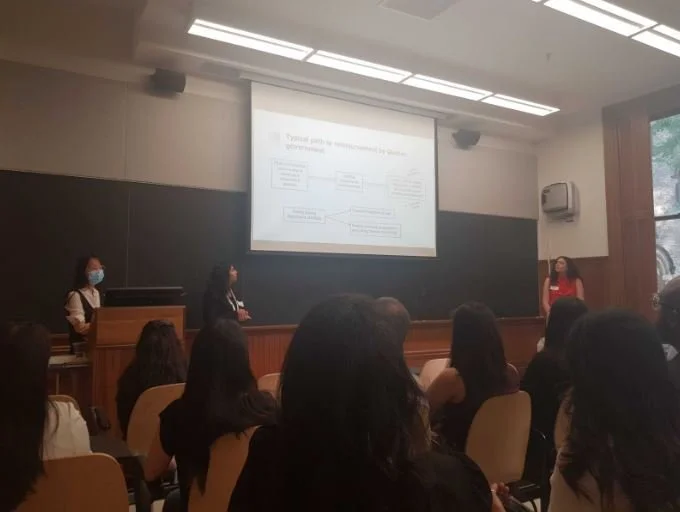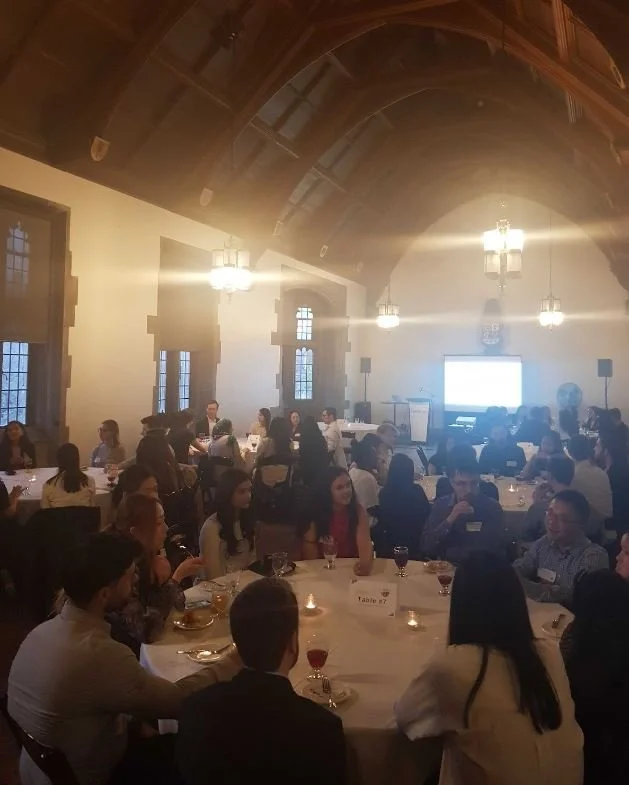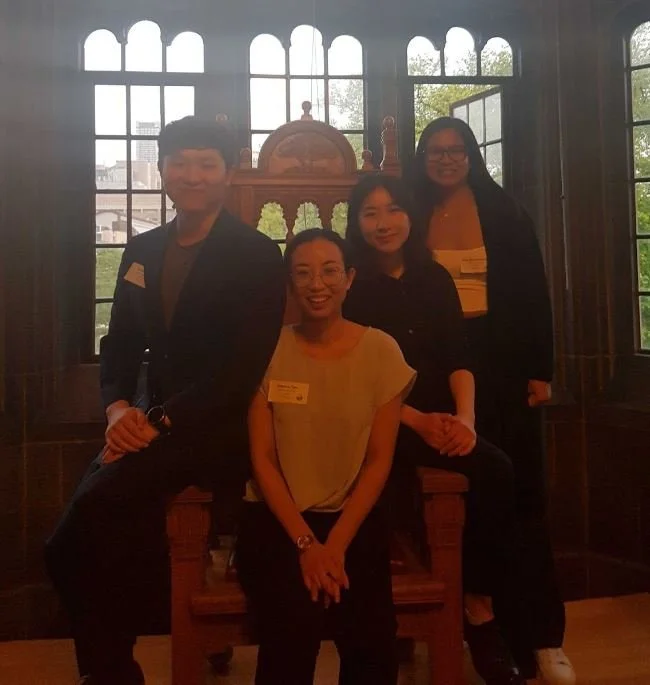Embracing Experiential Learning for Success Beyond Academia: ITCS 2023 Recap
Graduate students today are more excited than ever about entering the pharmaceutical industry post-graduation rather than taking traditional postdoctoral pathways. However, graduate schools provide little preparation for the skills and experiences needed beyond academia. The industry team case study (ITCS) is an annual experiential learning opportunity hosted by the LSCDS. The goal of the ITCS is to bridge the gap between academia and industry by allowing trainees the opportunity to use the skills developed in academia to tackle business and policy challenges found along the drug discovery value chain. While trainees in academia are typically focused on the discovery stage, the ITCS provides a glimpse of what happens with a therapeutic at the clinical trial phase and beyond; this includes regulatory approval, reimbursement, and key opinion leader (KOL)/stakeholder engagement.
The ITCS is a four-month engagement, where teams of 3-4 trainees investigate an emerging pharmaceutical treatment guided by an expert advisor in the field. The project simulates the tools used and challenges faced by professionals in regulatory affairs, market access, marketing and sales, or medical affairs. The trainees’ work culminates in a final presentation summarizing their findings at the Showcase and Networking event. This gives trainees an amazing opportunity to learn from each other, the advisors who support them, and other professionals in the pharmaceutical industry.
The presentations highlighted the different roles each sector plays in the drug discovery value chain in Canada. Regulatory affairs teams find the quickest pathways for a therapy to enter the Canadian market for a given indication. Market access teams increase the accessibility of a therapy by developing reimbursement schemes, so they are more affordable to the public. Marketing and sales navigate highly-regulated channels of communication as part of product launch strategies to increase consumer awareness. And medical affairs teams play an integral role in disseminating new clinical information on novel therapies to KOLs, which is essential to increase the usage of a therapy. Every year, each presentation investigates a different pharmaceutical therapy. Of the presentations I was able to attend, it was notable that trainees highlighted innovative spaces in women’s health, psychedelics, and heart failure.
One of the regulatory affairs teams assessed the regulatory approval process for Tildacerfont, a novel drug for the treatment of Polycystic Ovary Syndrome (PCOS) in Canada. PCOS currently affects 1 in 10 Canadian women and is treated symptomatically; Tildacerfont is a disease-modifying treatment that could alter disease progression for millions of Canadian women. The team investigated multiple regulatory pathways and determined that there was sufficient evidence to support a faster approval process through the Notice of Compliance with Conditions (NOC/c) pathway. The NOC/c is a 200-day approval process which grants approval for therapies after Phase 2 completion as long as safety is demonstrated and there is promising clinical evidence and effectiveness.
One of the market access teams assessed the reimbursement landscape for psilocybin in treatment-resistant depression in Quebec, Canada. This is a very interesting topic given the growing acceptance of psychedelics in the treatment of several mental health disorders. The team focused on Quebec, as it is the first Canadian province to cover psychedelics to assist in psychotherapy. Nevertheless, the current pathways to enable patient access to psychedelics are long. Additionally, the high unmet need (1 in 5 Canadian have depression), the $2 billion/year and $32 billion/year cost to the Quebec and Canadian economy, respectively, and the recent clinical success of the Phase 2 COMP360 trial, may warrant special access via the Quebec patient d’exception pathway allowing patients to access the therapy much quicker.
Finally, one of the medical affairs teams assessed increasing clinical use of SGLT2 inhibitors for Heart Failure with preserved Ejection Fraction (HFpEF). While SGLT2 inhibitors were approved and recommended as a first-line therapy for HFpEF by the American College of Cardiology in 2022, there are challenges impacting prescription rates by physicians. To assess these challenges, the team conducted a gap analysis to understand the current treatment landscape and potential barriers. This allowed them to develop a KOL survey, which was supplemented with a literature review of expert opinions from published talks and interviews. Interestingly, trainees commented on the difficulty to engage with KOLs for real-time discussion, which led to an enlightening conversation with advisors. It was illuminating to learn that while an understanding of science is important in medical affairs, the ability to build and maintain relationships is essential for a successful career. Despite this challenge, the insights gathered allowed the team to recommend a dual strategic approach involving organization of a Medical Advisory Board meeting and development of a lay-report to enable cross-functional training. Ultimately, these recommendations could lead to improved outcomes for HFpEF patients in Canada.
The ITCS provided a fun and valuable experience for trainees with on-the-job skill development and knowledge that they can move forward with as they pursue careers in industry. Advisors challenged the students with questions that tested the limits of their recommendations. Overall, Industry advisors were impressed at the quality of the presentations and were excited to participate in the upcoming years with suggestions of their own! The presentations were a great way to kick off an evening of discussion and networking, where trainees had the opportunity to connect in-person with their advisor and many others from sectors spanning the drug discovery value chain.
This year 60 trainees and 15 advisors participated in the LSCDS ITCS! A summary of the 2023 project report can be found on the LSCDS website (stay tuned to our socials for a link to the 2023 project report). Learn more about the program here and if you are interested in a transition to industry look out for updates on the LSCDS website and newsletter!
Final presentation given by the market access ITCS group
Trainees and professional advisors were engaged in conversation during the networking portion of the showcase
The showcase event and program was made possible by the 2023 ITCS team! Pictured above (left to right): Xavier Lee, Rebecca Tam, Linsey Gong, Amy Nouanesengsy (LSCDS Leadership)


